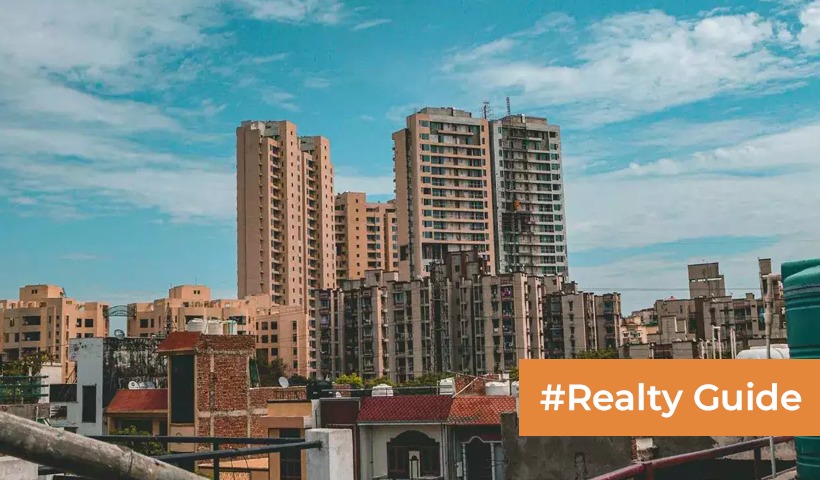How to Invest in Real Estate in India: A Beginner’s Guide for 2024
Real estate investment has long been one of the most popular methods of wealth creation in India. With rapid urbanisation, a growing population, and an increasing need for residential and commercial spaces, real estate investment continues to offer attractive returns. Whether you’re looking for long-term gains or passive income, understanding the fundamentals of real estate investment in India is key to making informed decisions.
This guide will walk you through everything you need to know about how to invest in real estate in India in 2024, including types of investments, steps to get started, and tips for first-time investors.
Why Invest in Real Estate in India?
Real estate investment in India presents a compelling opportunity for several reasons:
- Capital Appreciation: Property values in India tend to appreciate over time, especially in high-growth areas, making real estate a valuable long-term asset.
- Rental Income: Investing in rental properties provides a consistent source of passive income.
- Hedge Against Inflation: Real estate is a tangible asset that generally retains its value or increases during inflation, providing a buffer against rising costs.
- Diverse Options: The real estate investment landscape offers a range of properties, from residential homes to commercial spaces, catering to various investor profiles.

Types of Real Estate Investments in India
There are several types of real estate investments in India, each catering to different investor needs and financial goals:
- Residential Properties: This includes apartments, villas, and single-family homes. It’s a preferred option for those looking for rental income and capital appreciation over time.
- Commercial Properties: Office spaces, retail outlets, and warehouses fall under this category. They typically offer higher rental yields but require significant capital.
- Industrial Properties: Factories, warehouses, and distribution centres are categorised as industrial real estate. These properties are usually leased out for long-term business operations.
- Land: Purchasing undeveloped land offers long-term appreciation potential, especially if the area is expected to develop infrastructure.
- Real Estate Investment Trusts (REITs): REITs allow you to invest in real estate without directly owning property. They provide a diversified portfolio of commercial properties, often generating steady income through dividends.
Read More: Posh Societies in Mumbai for Luxury Living & Serenity
Steps to Invest in Real Estate in India in 2024
Investing in real estate in India requires a strategic approach. Here’s how you can get started:
- Research the Market: Before investing, study the local market trends. Look for areas with high growth potential, such as upcoming infrastructure projects or emerging commercial hubs.
- Set a Budget: Determine how much you’re willing to invest, factoring in additional costs such as stamp duty, registration fees, and legal charges.
- Choose the Right Property Type: Depending on your financial goals, choose between residential, commercial, industrial, or land investments.

- Secure Financing: If you’re taking a loan, ensure that you meet the eligibility criteria set by banks or financial institutions. This typically includes a good credit score, a steady income, and the ability to make a down payment.
- Legal Due Diligence: Verify the legal status of the property, including ownership rights, zoning regulations, and Real Estate Regulation and Development Act (RERA) registration.
- Finalising the Deal: Once you’re satisfied with your research, negotiate the price, finalise the paperwork, and make the payment.
Best Places to Invest in Real Estate in India in 2024
If you’re wondering about the best place to invest in real estate in India, several cities and regions offer promising growth:
- Mumbai: As India’s financial hub, Mumbai remains a top choice for residential and commercial investments. Areas like Bandra, Andheri, and Thane offer high appreciation potential.
- Bangalore: Known for its IT sector, Bangalore is an attractive city for both residential and commercial properties, especially in areas like Whitefield and Electronic City.
- Hyderabad: The city’s booming tech industry and excellent infrastructure make it a prime location for real estate investment.
- Pune: With a growing population and increasing demand for both residential and commercial spaces, Pune offers lucrative investment opportunities in areas like Hinjewadi and Kharadi.
- NCR: The National Capital Region continues to attract investments in commercial spaces, especially in Gurgaon and Noida.
Read More: Top 10 Best Cities with Affordable Housing in India?
Risks and Challenges in Real Estate Investment
While real estate investment in India can be highly rewarding, it’s essential to understand the risks involved:
- High Upfront Costs: Purchasing property requires a significant capital outlay, including down payments and additional fees like stamp duty.
- Illiquidity: Real estate is not as easily liquidated as stocks or bonds, which means selling a property can take time, especially in a slow market.
- Market Fluctuations: Property values can be affected by broader economic conditions, leading to potential losses if market trends shift.
- Management Responsibilities: Rental properties require ongoing management, including tenant screening, rent collection, and maintenance.
Tips for First-Time Real Estate Investors in India
Here are a few tips to help first-time investors navigate the real estate investment landscape:
- Start Small: If you’re new to real estate, consider starting with a small residential property before diving into larger commercial investments.
- Diversify: Don’t put all your eggs in one basket. Consider investing in different property types or locations to spread your risk.
- Consult Experts: Work with real estate agents, financial advisors, and legal professionals to ensure you’re making informed decisions.
- Understand the Legalities: Familiarize yourself with property laws, including RERA, land acquisition laws, and tax implications.
- Patience is Key: Real estate is a long-term investment. Be prepared to hold onto your property for several years to see significant returns.
Key Factors to Consider Before Investing in Real Estate
Before getting into real estate investment in India, consider these key factors:
- Location: Ensure the property is in a prime location with good connectivity, infrastructure, and future growth prospects.
- Market Condition: Study the current market trends and economic factors that could affect property values.
- Legal Status: Ensure the property is free from any legal disputes or encumbrances.
- Tax Implications: Be aware of the taxes associated with property transactions, including stamp duty, property tax, and income tax on rental income.
- Financing Options: Explore various financing options and choose one that offers favourable terms and interest rates.
Read More: Home Buying Checklist 2024: A Guide for First-Time Home Buyers in India
Government Policies and Incentives for Real Estate Investment in 2024
The Indian government offers several policies and incentives to encourage real estate investment:
- Pradhan Mantri Awas Yojana (PMAY): Aimed at providing affordable housing, this scheme offers subsidies for first-time homebuyers.
- RERA: The Real Estate Regulation and Development Act offers transparency and safeguards investors from fraudulent practices.
- Income Tax Deductions: Investors can claim deductions on home loan interest payments under Section 24(b) of the Income Tax Act.
How to Invest in Real Estate Without Buying Property
If direct property ownership isn’t for you, consider these alternatives for how to invest in real estate in India without buying a physical property:
- Real Estate Investment Trusts (REITs): Invest in a diversified portfolio of commercial properties and earn dividends.
- Real Estate Mutual Funds: Pool your money with other investors to invest in real estate assets.
- Crowdfunding: Participate in real estate crowdfunding platforms to invest in specific projects with smaller amounts.
Future Trends in the Indian Real Estate Market
The future of real estate investment in India is expected to see several trends:
- Increased Demand for Affordable Housing: Government initiatives like PMAY will continue to drive demand for affordable housing.
- Growth in Tier 2 and Tier 3 Cities: As major metros become saturated, more investors are turning to Tier 2 and Tier 3 cities for investment opportunities.
- Sustainable and Green Buildings: The growing emphasis on eco-friendly construction and sustainable practices will shape the future of real estate.
Conclusion
Real estate investment in India is a robust avenue for long-term wealth creation and financial security. Whether you’re investing in residential, commercial, or industrial properties, it’s essential to be well-prepared, understand the market, and assess the risks. By following the steps and tips outlined in this guide, you’ll be well on your way to making informed real estate investments in 2024. For personalised assistance, PropertyPistol can provide valuable insights and services to help you understand the real estate market.
FAQs
How much money do you need to invest in real estate in India?
It depends on the type of property and location. Residential properties may require an initial investment ranging from ₹50 lakhs to several crores.
Is real estate a good investment in 2024?
Yes, with urbanisation and infrastructure projects on the rise, real estate investment in India remains a strong option for capital appreciation and rental income.
How do I choose the best location for real estate investment in India?
Look for areas with good infrastructure, connectivity, and growth potential. Emerging markets like Hyderabad and Pune offer excellent opportunities.
What are the tax implications of real estate investment in India?
Real estate investors must pay stamp duty, property tax, and income tax on rental income. Additionally, capital gains tax applies when selling property.
How can I start investing in property in India?
Begin by researching the market, setting a budget, and securing financing. Consult real estate experts and ensure legal due diligence before finalising any deal.
Disclaimer: The views expressed above are for informational purposes only based on industry reports and related news stories. PropertyPistol does not guarantee the accuracy, completeness, or reliability of the information and shall not be held responsible for any action taken based on the published information.




